By Maxmilian Wechsler
| THE 2015 program of the Thailand Philharmonic Orchestra (TPO) presented in the glorious new Prince Mahidol Hall is set to raise the bar for musical performance in Thailand. Located on Mahidol University’s Salaya campus in Nakhom Pathom province, Prince Mahidol Hall is world class in terms of both acoustics and aesthetic appeal. Designed by the Thai firm Architects 49, the concept of the 2,016-seat hall incorporates traditional Thai architectural features derived from the natural world. |
“From the air the building can be seen to take the shape of the kan-phai flower, the floral emblem of Mahidol University,” says the TPO website (www.thailandphil.com). “The pattern on its roof resembles the skeletal framework of a human body, symbolizing the advancement of medical knowledge which inspired the birth of the university.” The architectural marvel just a short distance from Bangkok is a fitting home for a relatively new philharmonic orchestra that is fast gaining a reputation for excellence.
TPO will celebrate its 10th anniversary in June. The orchestra has presented more than 450 performances, mostly classical works, and recorded more than 10 CDs since its inauguration concert on June 23, 2005. Highly regarded conductors who have led TPO include Gudni Emilson, Claude Villaret and Alkis Batas. Guest soloists from around the world such as Eri Nakagawa (piano), Jens Lindemann (trumpet), Boris Brovtsyn (violin), Christina Bojin (flute) and Tomáš Strašil (cello) have also delighted Thai audiences.
Her Royal Highness Princess Maha Chakri Sirindhorn, representing His Majesty the King, presided over the grand opening of Prince Mahidol Hall on April 17, 2014.
The BigChilli visited Mahidol’s College of Music and Prince Mahidol Hall and spoke to some people who are making Prince Mahidol Hall a world class music venue in Southeast Asia.
Her Royal Highness Princess Maha Chakri Sirindhorn, representing His Majesty the King, presided over the grand opening of Prince Mahidol Hall on April 17, 2014.
The BigChilli visited Mahidol’s College of Music and Prince Mahidol Hall and spoke to some people who are making Prince Mahidol Hall a world class music venue in Southeast Asia.
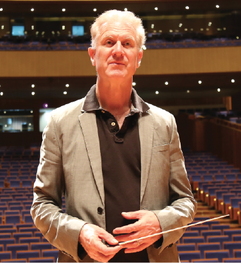
Conductor Christoph Poppen
PROFESSOR Christoph Poppen is a well-known German conductor who directed the TPO on January 9 in its first official performance in the newly constructed Prince Mahidol Hall.
“I was born in Germany and conduct all over the world,” he said. “I have been chief conductor with various orchestras but now I am working a lot as guest conductor. This means four days of rehearsals and intense work. Everybody must be prepared. The musicians must know their scores before they come to the rehearsals and we talk about all the details. What we played on January 9 was challenging because there were many different pieces on the program. It is a lot of work and the orchestra did very well.
“I have to say that this is a really fantastic achievement here. This concert hall is tremendous. I really like the acoustics and the shape of the hall. There are many cities and countries in Europe that would envy Bangkok. In Munich, which is certainly a musical city, they have been fighting for a new concert hall for decades and still don’t have it. I wonder if they will ever get it and if so, if it will be this quality.
“The engineer who did the acoustics for this hall is from Munich. Two companies are global leaders in acoustic research – one in New York and the other in Munich. The company in charge of this hall also did the new festival hall in Salzburg and the new concert hall in Berlin. This hall is the greatest, and the audiences are fantastic!
“My last chief position in Germany was with the German Radio Philharmonic Orchestra. After Thailand I will be conducting in Italy.” His hectic 2015 schedule can be viewed at www.christoph-poppen.com.
“Everybody knows that Thailand started a bit later in developing classical music than some other countries in Asia, but I am deeply impressed at how fast the development has gone ahead. I am very high on this symphonic orchestra and it is really a great joy to work with these musicians. The country, Mahidol University and Dr Sugree can be very proud. What he has built up during these years is really admirable and I am sure that with the new hall, the orchestra will develop much further in coming years and attract even more great musicians and also guest orchestras to play here.
“This orchestra has a very good mixture of Thai musicians and foreigners. Be aware that in Germany you will not find a single orchestra with only Germans. I don’t know the percentage, but I suppose the percentage of foreign musicians in Germany is at least 50 percent. I don’t think these days the ambition should be to create a pure national orchestra with only local musicians, because music is something very international and we can learn from each other. Everybody can contribute from the experiences she or he brings from their home country. Many of the foreign musicians I have talked to played in three or four other countries before coming here.
“I have a very large range of composers and compositions I like. I was born with classical music, starting with recordings of Bach. The classical world of Mozart, Beethoven, Shubert and Hayden is sort of my origin, but I think there is not a period that didn’t give birth to composers who I like very much. I conduct a lot of contemporary music as well.
“Sometimes it is not possible to memorize all musical scores in a performance because of a lack of time, complexity and so on, but I try to memorize as much as possible. Everybody can sign the last tune of the last movement of Beethoven’s Ninth Symphony, but there are many tricky places in the symphony. I conducted it in Vienna for a New Year’s Concert two years ago and it was not easy.
“Being a conductor is a strange profession because, of course, nobody is perfect and there are so many things that we can always do better. There’s not a day that we are not sitting at our desk and studying the scores and thinking also about the people.
“For me, what is fascinating about this profession is communicating the music with the audience and also the social communication with the musicians. They are all human beings, not machines, with different nationalities and mentalities, so it is a challenge to find the way to work with them so that they achieve their best.”
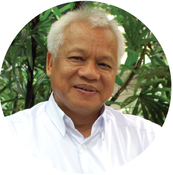
Dean Associated Professor Doctor Sugree Charoensook
“WE started planning the construction of the Prince Mahidol Hall in 2007,” said Dr Sugree Charoensook, the Dean of the College of Music. “At first the auditorium was intended to be mainly a place to hold commencement exercises, handing out diplomas and so forth. But I finally persuaded the former university president that what Thailand really needed was a concert hall with good acoustics. He helped me push for a first-rate concert hall and construction went ahead.
“We poured a lot of money into building this hall, altogether about 1.5 billion baht. Two-thirds of the budget came from the government and the rest from the Mahidol University system. The soft opening of Prince Mahidol Hall was in January 2014 and the official opening was in April 2014.”
Almost all other halls in Thailand, including the one at the Thailand Cultural Centre, were built as multi-purpose venues, whereas the purpose of Prince Mahidol Hall is specifically for the enjoyment of music, although it can also be used for theatre, ballet and other events. “We started something brand new and positive for the Thai society,” said Dr Sugree. “There are many places to hold meetings in Thailand, including first class hotels, but there is no place else like this.”
Dr Sugree said concert audiences are mainly made up of well-educated people who appreciate the arts. He lamented the educational standards in Thailand that fail to nurture an appreciation of culture and the arts. “However, at the College of Music the quality of education comes first. Students come here not only to learn how to play their instruments but also to learn what will become their profession.”
The dean said that most Thai students don’t decide on a profession until after finishing high school (mathayom), but that’s not a good strategy for those who want to be accomplished musicians. “In our school we try to press children and their parents to make a decision earlier, so that they can become world class.
“We also run campuses at three shopping centers in Bangkok offering musical instruction for children as young as three. These are at Siam Paragon, Seacon Srinakharin and Seacon Bangkae. We have been working for 20 years to achieve high quality musical training at an early age,” said Dr Sugree.
“Every potential student must first of all be able to sing. Then he or she must learn to play piano. After that they can select what instrument they want to learn to play. They must play piano to feel the music, to set their minds, ears and bodies to music.
“We have a wide variety of instruments and styles to choose from, ranging from folk to classical to jazz, as well as Thai and even oriental music. We offer many options. We aren’t saying that this instrument is better to learn than another, because any instrument they select can earn them a living if they are good enough. If they are quality musicians, they can play anywhere in the world.
“Some youngsters stop playing when they are 15 or 16 – this may be the fault of their teachers or maybe they just lose interest. They might discover they are not really cut out to be a musician. Some kids, after trying to learn to play, will say, ‘Why should I work so hard for so little money?’ They want to be a world class guitarist without putting in the effort or having the talent.
“This is the advantage of our pre-college program. The kids who come here have to pass auditions, which means that we know they are talented and can be good musicians. About 90 percent of them will stay with it; the rest select other professions later on.
“As far as classical music, the aim of every student here is to play for the TPO. The orchestra also plays ‘new music.’ Over the past ten years, more than 350 pieces performed by TPO have been new in terms of sound, arrangement and/or composition. For example, we will take traditional Thai or folk music and arrange it for a symphonic orchestra.
“It is a priority for the TPO that we meet international standards. We want to make our own recordings. One of our goals is also to make music for movies. If we could record for Hollywood films in the future, this would be very good for Thailand. We are still lagging behind China, Singapore, Japan and Hong Kong, but we are trying to put Thailand on the classical music map. To achieve this, every day we play music, train and bring in new people.
“We have world class musicians coming here every week. There are many Thai and foreign music lovers living here who never come to our performances. If they come and listen to the TPO, they will say, ‘Why didn’t I know about this before?’
“My main job is to ensure quality, because then people will come. Some radio stations in Thailand play our music but mostly they don’t. Some people complain that Salaya is too far or they are waiting for a free ticket. I want to tell them how lucky they are to be able to come here and listen to our symphony orchestra!
“We are the only orchestra in Thailand that has a season program. The whole college is working for the TPO. We need everyone to work together. With many foreigners the quality is going up, but we have many good Thai musicians as well. We train them from when they are young. Later they join the orchestra as trainees and finally they become full-time musicians. By the time they have gone through the process they are professionals.
“We have music teachers here from about 20 nations, and about forty percent of our orchestra is comprised of foreigners. We have about 100 musicians in the TPO, and they also teach in the college. Most professional orchestras abroad are sponsored by a city or country; we are the only philharmonic orchestra in the world that belongs to a Music College. Here the students and the teachers play together, and this instills quality in our program.”
“WE started planning the construction of the Prince Mahidol Hall in 2007,” said Dr Sugree Charoensook, the Dean of the College of Music. “At first the auditorium was intended to be mainly a place to hold commencement exercises, handing out diplomas and so forth. But I finally persuaded the former university president that what Thailand really needed was a concert hall with good acoustics. He helped me push for a first-rate concert hall and construction went ahead.
“We poured a lot of money into building this hall, altogether about 1.5 billion baht. Two-thirds of the budget came from the government and the rest from the Mahidol University system. The soft opening of Prince Mahidol Hall was in January 2014 and the official opening was in April 2014.”
Almost all other halls in Thailand, including the one at the Thailand Cultural Centre, were built as multi-purpose venues, whereas the purpose of Prince Mahidol Hall is specifically for the enjoyment of music, although it can also be used for theatre, ballet and other events. “We started something brand new and positive for the Thai society,” said Dr Sugree. “There are many places to hold meetings in Thailand, including first class hotels, but there is no place else like this.”
Dr Sugree said concert audiences are mainly made up of well-educated people who appreciate the arts. He lamented the educational standards in Thailand that fail to nurture an appreciation of culture and the arts. “However, at the College of Music the quality of education comes first. Students come here not only to learn how to play their instruments but also to learn what will become their profession.”
The dean said that most Thai students don’t decide on a profession until after finishing high school (mathayom), but that’s not a good strategy for those who want to be accomplished musicians. “In our school we try to press children and their parents to make a decision earlier, so that they can become world class.
“We also run campuses at three shopping centers in Bangkok offering musical instruction for children as young as three. These are at Siam Paragon, Seacon Srinakharin and Seacon Bangkae. We have been working for 20 years to achieve high quality musical training at an early age,” said Dr Sugree.
“Every potential student must first of all be able to sing. Then he or she must learn to play piano. After that they can select what instrument they want to learn to play. They must play piano to feel the music, to set their minds, ears and bodies to music.
“We have a wide variety of instruments and styles to choose from, ranging from folk to classical to jazz, as well as Thai and even oriental music. We offer many options. We aren’t saying that this instrument is better to learn than another, because any instrument they select can earn them a living if they are good enough. If they are quality musicians, they can play anywhere in the world.
“Some youngsters stop playing when they are 15 or 16 – this may be the fault of their teachers or maybe they just lose interest. They might discover they are not really cut out to be a musician. Some kids, after trying to learn to play, will say, ‘Why should I work so hard for so little money?’ They want to be a world class guitarist without putting in the effort or having the talent.
“This is the advantage of our pre-college program. The kids who come here have to pass auditions, which means that we know they are talented and can be good musicians. About 90 percent of them will stay with it; the rest select other professions later on.
“As far as classical music, the aim of every student here is to play for the TPO. The orchestra also plays ‘new music.’ Over the past ten years, more than 350 pieces performed by TPO have been new in terms of sound, arrangement and/or composition. For example, we will take traditional Thai or folk music and arrange it for a symphonic orchestra.
“It is a priority for the TPO that we meet international standards. We want to make our own recordings. One of our goals is also to make music for movies. If we could record for Hollywood films in the future, this would be very good for Thailand. We are still lagging behind China, Singapore, Japan and Hong Kong, but we are trying to put Thailand on the classical music map. To achieve this, every day we play music, train and bring in new people.
“We have world class musicians coming here every week. There are many Thai and foreign music lovers living here who never come to our performances. If they come and listen to the TPO, they will say, ‘Why didn’t I know about this before?’
“My main job is to ensure quality, because then people will come. Some radio stations in Thailand play our music but mostly they don’t. Some people complain that Salaya is too far or they are waiting for a free ticket. I want to tell them how lucky they are to be able to come here and listen to our symphony orchestra!
“We are the only orchestra in Thailand that has a season program. The whole college is working for the TPO. We need everyone to work together. With many foreigners the quality is going up, but we have many good Thai musicians as well. We train them from when they are young. Later they join the orchestra as trainees and finally they become full-time musicians. By the time they have gone through the process they are professionals.
“We have music teachers here from about 20 nations, and about forty percent of our orchestra is comprised of foreigners. We have about 100 musicians in the TPO, and they also teach in the college. Most professional orchestras abroad are sponsored by a city or country; we are the only philharmonic orchestra in the world that belongs to a Music College. Here the students and the teachers play together, and this instills quality in our program.”
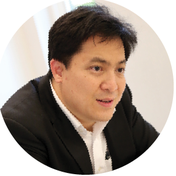
Ekachai Chainuvati, TPO General Manager
EKACHAI Chainuvati showed The BigChilli around Prince Mahidol Hall and gave some background on the organization of the orchestra. “The TPO is the only orchestra in Thailand made up entirely of professional musicians. They live from their salary. Ninety-nine percent of all foreign musicians here are lecturers at the Music College.
“Last year we spent 67 million baht for the whole season for the orchestra. Most of our financial support comes from private donors such as Khunying Patama Leeswadrakul, Chairman of the TPO Board of Directors. She is our major donor. We also have support from former Deputy Prime Minister Kittirat Na Ranong.
“The ticket price doesn’t cover everything. Tickets are only 300 or 500 baht. Mahidol students pay only 100 baht and Mahidol Music College students pay nothing, they just have to show their IDs. So we depend on contributions from private sources, not from public organizations. The government also gives us about 30 million baht each year because the TPO is still a part of the College of Music.
“The TPO finds foreign players through the good work of Dr Sugree. He has so many friends all over the world, including the directors of many orchestras. Last year we had general auditions, and musicians from Spain, Poland, Singapore and other countries flew here to try out.
“At present the orchestra has musicians from 15 countries, including Canada, China, Czech Republic, Germany, Greece, Italy, Japan, Latvia, Poland, Singapore, South Korea and the United States. The goal of Dr Sugree is to integrate foreign musicians with Thai students, who are like apprentices. They teach them and then they play together in the same orchestra. This has never happened in Thailand before. We call other orchestras in Thailand ‘telephone orchestras’ – meaning that you set the date and telephone to find the people to play. But we have the musicians here for the whole season.
“The TPO is not only about the music, it is also an effort of Dr Sugree to show the world that even though this art has western origins, we Thais, with the help of foreign musicians, can do it. His goal is to put the TPO on the symphonic map of Southeast Asia and beyond.”
EKACHAI Chainuvati showed The BigChilli around Prince Mahidol Hall and gave some background on the organization of the orchestra. “The TPO is the only orchestra in Thailand made up entirely of professional musicians. They live from their salary. Ninety-nine percent of all foreign musicians here are lecturers at the Music College.
“Last year we spent 67 million baht for the whole season for the orchestra. Most of our financial support comes from private donors such as Khunying Patama Leeswadrakul, Chairman of the TPO Board of Directors. She is our major donor. We also have support from former Deputy Prime Minister Kittirat Na Ranong.
“The ticket price doesn’t cover everything. Tickets are only 300 or 500 baht. Mahidol students pay only 100 baht and Mahidol Music College students pay nothing, they just have to show their IDs. So we depend on contributions from private sources, not from public organizations. The government also gives us about 30 million baht each year because the TPO is still a part of the College of Music.
“The TPO finds foreign players through the good work of Dr Sugree. He has so many friends all over the world, including the directors of many orchestras. Last year we had general auditions, and musicians from Spain, Poland, Singapore and other countries flew here to try out.
“At present the orchestra has musicians from 15 countries, including Canada, China, Czech Republic, Germany, Greece, Italy, Japan, Latvia, Poland, Singapore, South Korea and the United States. The goal of Dr Sugree is to integrate foreign musicians with Thai students, who are like apprentices. They teach them and then they play together in the same orchestra. This has never happened in Thailand before. We call other orchestras in Thailand ‘telephone orchestras’ – meaning that you set the date and telephone to find the people to play. But we have the musicians here for the whole season.
“The TPO is not only about the music, it is also an effort of Dr Sugree to show the world that even though this art has western origins, we Thais, with the help of foreign musicians, can do it. His goal is to put the TPO on the symphonic map of Southeast Asia and beyond.”
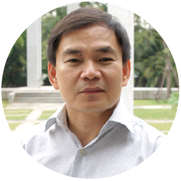
Sittichai Pengcharoen – Concertmaster
MR SITTICHAI is a Thai violinist and the second most important person in the orchestra after the conductor. “I sit in the centre of the orchestra, next to the conductor. I organize all string players. I have been playing with the orchestra since its beginning in 2005. When I was young I used to play Thai string instruments and finally selected the violin. I have had many violins but the one I play now is an Italian-made instrument, around 100 years old. There are some shops in Bangkok where you can buy violins but if you are looking for a very good violin you have to go abroad.
“One of my roles is to prepare each member of the orchestra before the conductor arrives, like tuning up. To tune the orchestra takes only two minutes. At the beginning of the concert, I will stand up and tune my instrument to certain melodies and everyone will follow me. My most important responsibility is to make them play together. I sit in the first row, so even the conductor can’t make it then I can still run the orchestra.
“We practice every day and play concerts every Friday and Saturday. Every player has to practice every day, of course. Everyone in the orchestra began studying and playing music from a young age and they are all good enough to play in a professional orchestra.
“I started to play and learn music in Bangkok when I was 13 years old. I studied and played in school orchestras abroad, including in the United States, Belgium and in Germany. Some schools and universities in Thailand have their own orchestras, but they are mainly chamber orchestras consisting of 15 to 20 players, mostly string and some wind players. These ensembles usually travel around.
“Most of our teachers are from abroad. About 60 percent of the musicians in the TPO are Thai and the rest foreigners. I believe that this orchestra has a good future and things are going very well at present.”
MR SITTICHAI is a Thai violinist and the second most important person in the orchestra after the conductor. “I sit in the centre of the orchestra, next to the conductor. I organize all string players. I have been playing with the orchestra since its beginning in 2005. When I was young I used to play Thai string instruments and finally selected the violin. I have had many violins but the one I play now is an Italian-made instrument, around 100 years old. There are some shops in Bangkok where you can buy violins but if you are looking for a very good violin you have to go abroad.
“One of my roles is to prepare each member of the orchestra before the conductor arrives, like tuning up. To tune the orchestra takes only two minutes. At the beginning of the concert, I will stand up and tune my instrument to certain melodies and everyone will follow me. My most important responsibility is to make them play together. I sit in the first row, so even the conductor can’t make it then I can still run the orchestra.
“We practice every day and play concerts every Friday and Saturday. Every player has to practice every day, of course. Everyone in the orchestra began studying and playing music from a young age and they are all good enough to play in a professional orchestra.
“I started to play and learn music in Bangkok when I was 13 years old. I studied and played in school orchestras abroad, including in the United States, Belgium and in Germany. Some schools and universities in Thailand have their own orchestras, but they are mainly chamber orchestras consisting of 15 to 20 players, mostly string and some wind players. These ensembles usually travel around.
“Most of our teachers are from abroad. About 60 percent of the musicians in the TPO are Thai and the rest foreigners. I believe that this orchestra has a good future and things are going very well at present.”
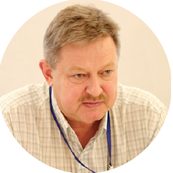
Máris Árents
MÁRIS Árents is a native of Latvia whose job is double bass instructor and principal of the orchestra’s double bass section. He leads the section and gives advice to other double bass players. He is widely respected.
“I was born in Riga, capital of Latvia. I spent 30 years playing for the Latvian National Symphony Orchestra before coming here in 2002. At that time there was nothing here. Ten years ago we had only one building and now you see what we have. All this is through the efforts of Dr Sugree.
“I am sure it would be very difficult to find anything like this Music College in Europe, or maybe even around the world. It’s so big and has such good equipment and facilities for students. Everything here is world class.”
Mr Árents said the decision to come to Thailand wasn’t easy. “I left a good job and a good quality orchestra and came here. But I wanted to do something different. On my first day here I asked Dr Sugree: ‘What do you expect from me, what is my job exactly?’ His answer was very interesting. He said: ‘In Thailand we have 64 million people. You need to find eight of them who can play double bass for the orchestra.’ At that time we didn’t have an orchestra. The TPO is a very new orchestra; we are only in our 10th season.
“After five years of performing you start to feel like a musician. It can’t be done in one, two or three years. We are in the beginning stage and progressing well. We have good soloists and a lot of good conductors are coming here.
“I am very happy with my achievements here. I see that more than half of my students are now playing in the orchestra. I started from the first day teaching them how to hold their instruments, and now they are professional musicians.
“This is a big secret, but not every star musician can actually play in an orchestra. Famous musicians like David Oistrakh and Miša Majski are great soloists, but I don’t know if they can play in an orchestra. This is more of a team job; to be together, to find each other and to know each other. It is very complicated.
“The orchestra has to play more classical music because maybe the Thai audience is not ready for contemporary music. We have made some recordings, mainly compositions of His Majesty the King and Thai music because this is what the Thai people will buy.”
MÁRIS Árents is a native of Latvia whose job is double bass instructor and principal of the orchestra’s double bass section. He leads the section and gives advice to other double bass players. He is widely respected.
“I was born in Riga, capital of Latvia. I spent 30 years playing for the Latvian National Symphony Orchestra before coming here in 2002. At that time there was nothing here. Ten years ago we had only one building and now you see what we have. All this is through the efforts of Dr Sugree.
“I am sure it would be very difficult to find anything like this Music College in Europe, or maybe even around the world. It’s so big and has such good equipment and facilities for students. Everything here is world class.”
Mr Árents said the decision to come to Thailand wasn’t easy. “I left a good job and a good quality orchestra and came here. But I wanted to do something different. On my first day here I asked Dr Sugree: ‘What do you expect from me, what is my job exactly?’ His answer was very interesting. He said: ‘In Thailand we have 64 million people. You need to find eight of them who can play double bass for the orchestra.’ At that time we didn’t have an orchestra. The TPO is a very new orchestra; we are only in our 10th season.
“After five years of performing you start to feel like a musician. It can’t be done in one, two or three years. We are in the beginning stage and progressing well. We have good soloists and a lot of good conductors are coming here.
“I am very happy with my achievements here. I see that more than half of my students are now playing in the orchestra. I started from the first day teaching them how to hold their instruments, and now they are professional musicians.
“This is a big secret, but not every star musician can actually play in an orchestra. Famous musicians like David Oistrakh and Miša Majski are great soloists, but I don’t know if they can play in an orchestra. This is more of a team job; to be together, to find each other and to know each other. It is very complicated.
“The orchestra has to play more classical music because maybe the Thai audience is not ready for contemporary music. We have made some recordings, mainly compositions of His Majesty the King and Thai music because this is what the Thai people will buy.”
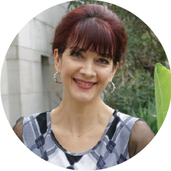
Inga Causa
INGA Causa is also from Latvia, and played in the same orchestra as Máris. They arrived here around the same time. She is the leader of the second violin group. “The violinists are divided into two sections. We have two voices; the second violin group usually plays a little bit lower voice to support the first violin.
“It is hard job to play professionally, but it also brings a lot of joy. It is my dream job, to play in the symphonic orchestra. I never wanted to be a soloist. I started to play professionally in an orchestra when I was 17 years old. I played four to five years in the Latvian National Opera Orchestra and then moved to the Latvian National Symphonic Orchestra, where I worked for 15 years. I came here by invitation of Dr Sugree. He organized a memorial concert in January 2002 to commemorate the 9/11 tragedy in America. A couple of musicians from different countries including myself came here for this performance.
“I teach every day but I don’t actually practice every day because I don’t have time. But I play with students when I teach, so there’s no day when I am not playing. The lessons are usually one-on-one but they are not private classes. The students pay tuition and the school pays our salary. Every musician must sign a contract with the TPO for one year. As for the school, this is a different organization, so we can get a longer contract.
“I have been here for 11 years and I would like to stay. I came for the first time on a six-month contract to escape from cold Latvia and get a taste of the tropics. I have extended my contract again and again and I still don’t want to go back. During my two years here I lost my job with the Latvian Philharmonic because they couldn’t wait for me.
“I have good ear for music but not for language. It is not easy for me to learn Thai. I am an experienced musician but you learn every day. I love to play classical music and also pop music. Back in Latvia I used to play with pop musicians.”
INGA Causa is also from Latvia, and played in the same orchestra as Máris. They arrived here around the same time. She is the leader of the second violin group. “The violinists are divided into two sections. We have two voices; the second violin group usually plays a little bit lower voice to support the first violin.
“It is hard job to play professionally, but it also brings a lot of joy. It is my dream job, to play in the symphonic orchestra. I never wanted to be a soloist. I started to play professionally in an orchestra when I was 17 years old. I played four to five years in the Latvian National Opera Orchestra and then moved to the Latvian National Symphonic Orchestra, where I worked for 15 years. I came here by invitation of Dr Sugree. He organized a memorial concert in January 2002 to commemorate the 9/11 tragedy in America. A couple of musicians from different countries including myself came here for this performance.
“I teach every day but I don’t actually practice every day because I don’t have time. But I play with students when I teach, so there’s no day when I am not playing. The lessons are usually one-on-one but they are not private classes. The students pay tuition and the school pays our salary. Every musician must sign a contract with the TPO for one year. As for the school, this is a different organization, so we can get a longer contract.
“I have been here for 11 years and I would like to stay. I came for the first time on a six-month contract to escape from cold Latvia and get a taste of the tropics. I have extended my contract again and again and I still don’t want to go back. During my two years here I lost my job with the Latvian Philharmonic because they couldn’t wait for me.
“I have good ear for music but not for language. It is not easy for me to learn Thai. I am an experienced musician but you learn every day. I love to play classical music and also pop music. Back in Latvia I used to play with pop musicians.”

Malgorzata Loboda
VIOLINIST Malgorzata comes from the small Polish town of Zary and studied in Wroclaw. “I started to play violin when I was five years old. It was my idea, not my parents’. I left Poland when I was 18 to study in Maastricht in the Netherlands, where most of my family is. I was a soloist. I didn’t play in an orchestra until I was older.
“Actually, I am fresh from my studies. I recently played with the Australian Chamber Orchestra in Sydney and then came here. Why did I come here? It is a funny story.
“I came here with my backpack. I was travelling through Asia, and was in Bali when someone called me about doing a chamber music concert in Bangkok last September. So I came to Bangkok, and then I met a member of the orchestra from Poland. He told me about the TPO and said that there would be an audition. So it wasn’t planned, but here I am. I started the job in November 2014. I like it here very much and would like to stay a long time.
“I bought my violin in Poland from a fantastic violin maker who is well known in Poland. It is hand-made and my baby. The violin is insured. Of course, I will never sell it.
“I haven’t played much in orchestras. This is only the second one, and the one before was a chamber orchestra, which is a completely different category. It was a small group of musicians. The TPO is a big group with many players. There are about 28-32 violinists in the orchestra. I play the first violin. I am number two violinist in the orchestra.
“We have to practice every day. I teach Thai students here as well. Music is very universal so they understand me very well, and if they don’t I just show them by playing.
“It is a nice environment here, very beautiful. It is a lovely place to work and I plan to stay for a long time. But I miss my parents.”
VIOLINIST Malgorzata comes from the small Polish town of Zary and studied in Wroclaw. “I started to play violin when I was five years old. It was my idea, not my parents’. I left Poland when I was 18 to study in Maastricht in the Netherlands, where most of my family is. I was a soloist. I didn’t play in an orchestra until I was older.
“Actually, I am fresh from my studies. I recently played with the Australian Chamber Orchestra in Sydney and then came here. Why did I come here? It is a funny story.
“I came here with my backpack. I was travelling through Asia, and was in Bali when someone called me about doing a chamber music concert in Bangkok last September. So I came to Bangkok, and then I met a member of the orchestra from Poland. He told me about the TPO and said that there would be an audition. So it wasn’t planned, but here I am. I started the job in November 2014. I like it here very much and would like to stay a long time.
“I bought my violin in Poland from a fantastic violin maker who is well known in Poland. It is hand-made and my baby. The violin is insured. Of course, I will never sell it.
“I haven’t played much in orchestras. This is only the second one, and the one before was a chamber orchestra, which is a completely different category. It was a small group of musicians. The TPO is a big group with many players. There are about 28-32 violinists in the orchestra. I play the first violin. I am number two violinist in the orchestra.
“We have to practice every day. I teach Thai students here as well. Music is very universal so they understand me very well, and if they don’t I just show them by playing.
“It is a nice environment here, very beautiful. It is a lovely place to work and I plan to stay for a long time. But I miss my parents.”
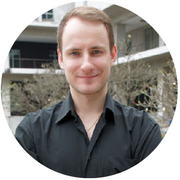
Jan Špacek
JAN was born in Prague, Czech Republic 26 years ago. He plays contrabass, or double bass. ‘‘I started to learn to play my instrument when I was about 11. Double bass is the biggest string instrument. It was my parents who directed me to play. My mother is a professional violin teacher and my father has some musical background and plays piano.
“When I was young, I played piano and cymbal a little, and when I was 11, my mother asked me if I wanted to play double bass because it is an interesting instrument. She also knew that she needed a double bass in her folk music group.” He smiles at the memory. “Before coming here I played in the Prague Symphonic Orchestra. The double bass I am playing I borrowed from the TPO. It is a German instrument bought for the orchestra.”
Asked how he ended up in Thailand, Jan replied: “You can see from the program of the TPO that there is quite a big connection to the Czech Republic as several solo players are Czech. My brother Peter and I were invited by Dr Sugree to come and play here. He asked one of the chief conductors in Poland to find some players. A friend of Dr Sugree who is a soloist from the Czech Republic is a professor of Peter. We arrived here together in late October 2014.
“We also teach Thai students. Thais have a big potential because of their nature. If you take, for example, Japanese musicians, they tend to be very precise but not that musical. Thai people feel the music. I feel they are more warm-hearted than people in other Asian countries. That’s a good thing. We have some good material to work with and our students are very interested to learn.
“Of course, in general the level of musicianship is not as high as we are used to in Europe. In Europe there is a very long tradition. The Prague Conservatoire was founded in 1808, more than 200 years ago. Dr Sugree has built this school from nothing in just 20 years. The way they are doing things here is the right way. You can’t become a world class musician overnight, but if you work hard, you will eventually become one.
“I like it here. It is challenging work and the foreigners are helping the TPO to improve. In my opinion, this mix is very important because you blend not only cultures but also qualities, knowledge and experience. This blend helps to create a great orchestra.”
JAN was born in Prague, Czech Republic 26 years ago. He plays contrabass, or double bass. ‘‘I started to learn to play my instrument when I was about 11. Double bass is the biggest string instrument. It was my parents who directed me to play. My mother is a professional violin teacher and my father has some musical background and plays piano.
“When I was young, I played piano and cymbal a little, and when I was 11, my mother asked me if I wanted to play double bass because it is an interesting instrument. She also knew that she needed a double bass in her folk music group.” He smiles at the memory. “Before coming here I played in the Prague Symphonic Orchestra. The double bass I am playing I borrowed from the TPO. It is a German instrument bought for the orchestra.”
Asked how he ended up in Thailand, Jan replied: “You can see from the program of the TPO that there is quite a big connection to the Czech Republic as several solo players are Czech. My brother Peter and I were invited by Dr Sugree to come and play here. He asked one of the chief conductors in Poland to find some players. A friend of Dr Sugree who is a soloist from the Czech Republic is a professor of Peter. We arrived here together in late October 2014.
“We also teach Thai students. Thais have a big potential because of their nature. If you take, for example, Japanese musicians, they tend to be very precise but not that musical. Thai people feel the music. I feel they are more warm-hearted than people in other Asian countries. That’s a good thing. We have some good material to work with and our students are very interested to learn.
“Of course, in general the level of musicianship is not as high as we are used to in Europe. In Europe there is a very long tradition. The Prague Conservatoire was founded in 1808, more than 200 years ago. Dr Sugree has built this school from nothing in just 20 years. The way they are doing things here is the right way. You can’t become a world class musician overnight, but if you work hard, you will eventually become one.
“I like it here. It is challenging work and the foreigners are helping the TPO to improve. In my opinion, this mix is very important because you blend not only cultures but also qualities, knowledge and experience. This blend helps to create a great orchestra.”
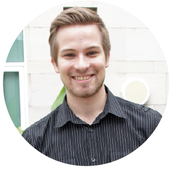
Petr Špacek
JAN’S younger brother Petr agreed that Thai musicianship in general is not as high as in Europe, but said he’d seen a few students with really big potential. “I started to play when I was five years old. I have played the cello for 16 years. I brought my own from the Czech Republic. It wasn’t so difficult to bring it here, but because of its size I had to pay for an extra seat on the plane. It is safer to have it next to me than sending it by cargo because it could suffer damage during handling.
“This particular cello was made by a violin-maker in Prague and it is quite expensive. I don’t know really how difficult it is to purchase a good cello in Thailand. As for the strings, I can buy them here but they don’t have all the types I like, so I order them from abroad or I ask my parents to send them to me. I can also play clarinet and piano.
“Like other foreign musicians, I came here to play and to teach. My brother and I have one-year contracts. I still haven’t finished my studies in the Czech Republic, but being here is a good way to get experience and improve myself.”
Like his brother, Petr is enjoying his stay in Thailand, and he appreciates the “huge applause” after each concert.
www.thailandphil.com
JAN’S younger brother Petr agreed that Thai musicianship in general is not as high as in Europe, but said he’d seen a few students with really big potential. “I started to play when I was five years old. I have played the cello for 16 years. I brought my own from the Czech Republic. It wasn’t so difficult to bring it here, but because of its size I had to pay for an extra seat on the plane. It is safer to have it next to me than sending it by cargo because it could suffer damage during handling.
“This particular cello was made by a violin-maker in Prague and it is quite expensive. I don’t know really how difficult it is to purchase a good cello in Thailand. As for the strings, I can buy them here but they don’t have all the types I like, so I order them from abroad or I ask my parents to send them to me. I can also play clarinet and piano.
“Like other foreign musicians, I came here to play and to teach. My brother and I have one-year contracts. I still haven’t finished my studies in the Czech Republic, but being here is a good way to get experience and improve myself.”
Like his brother, Petr is enjoying his stay in Thailand, and he appreciates the “huge applause” after each concert.
www.thailandphil.com

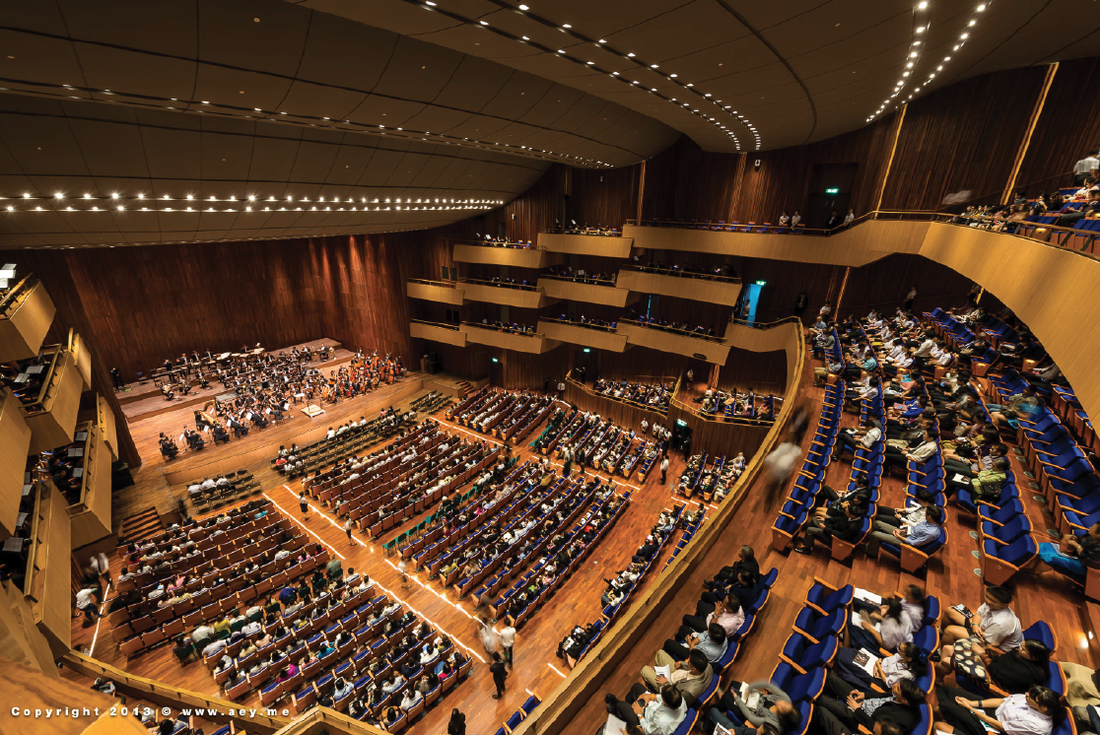
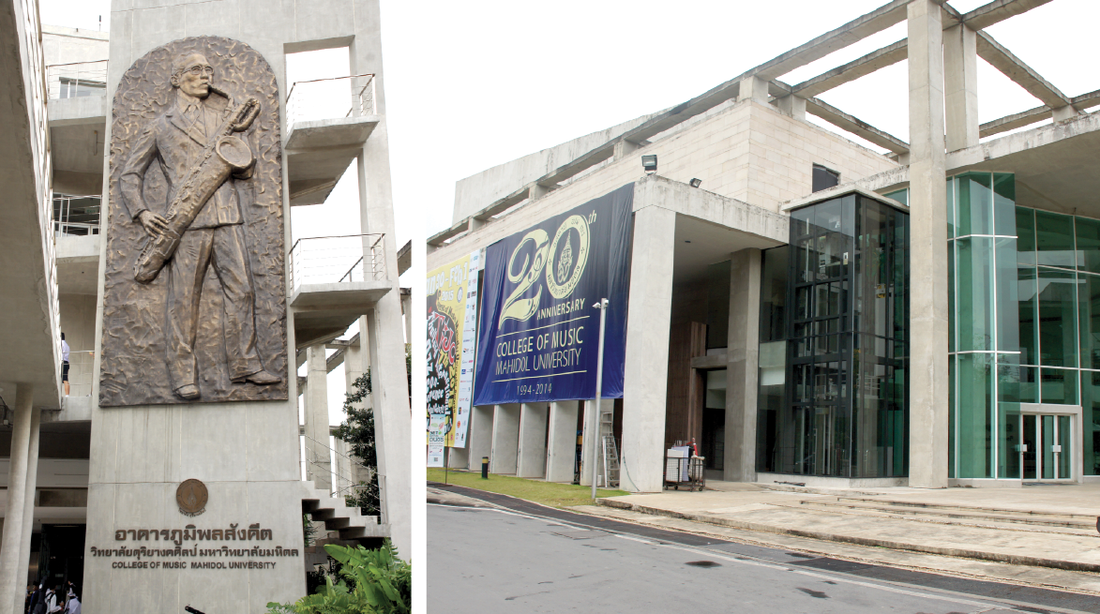
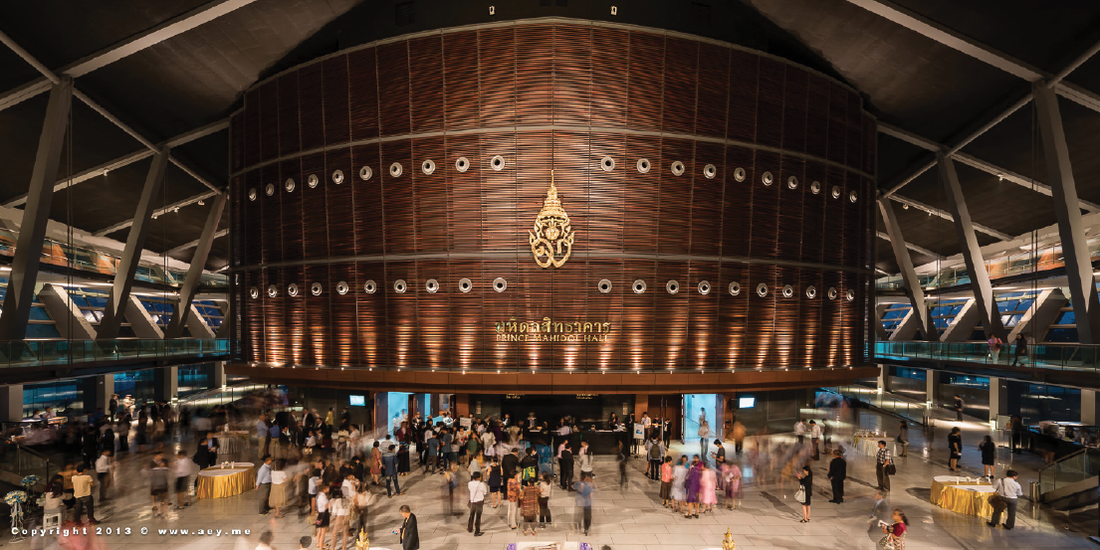
 RSS Feed
RSS Feed
















